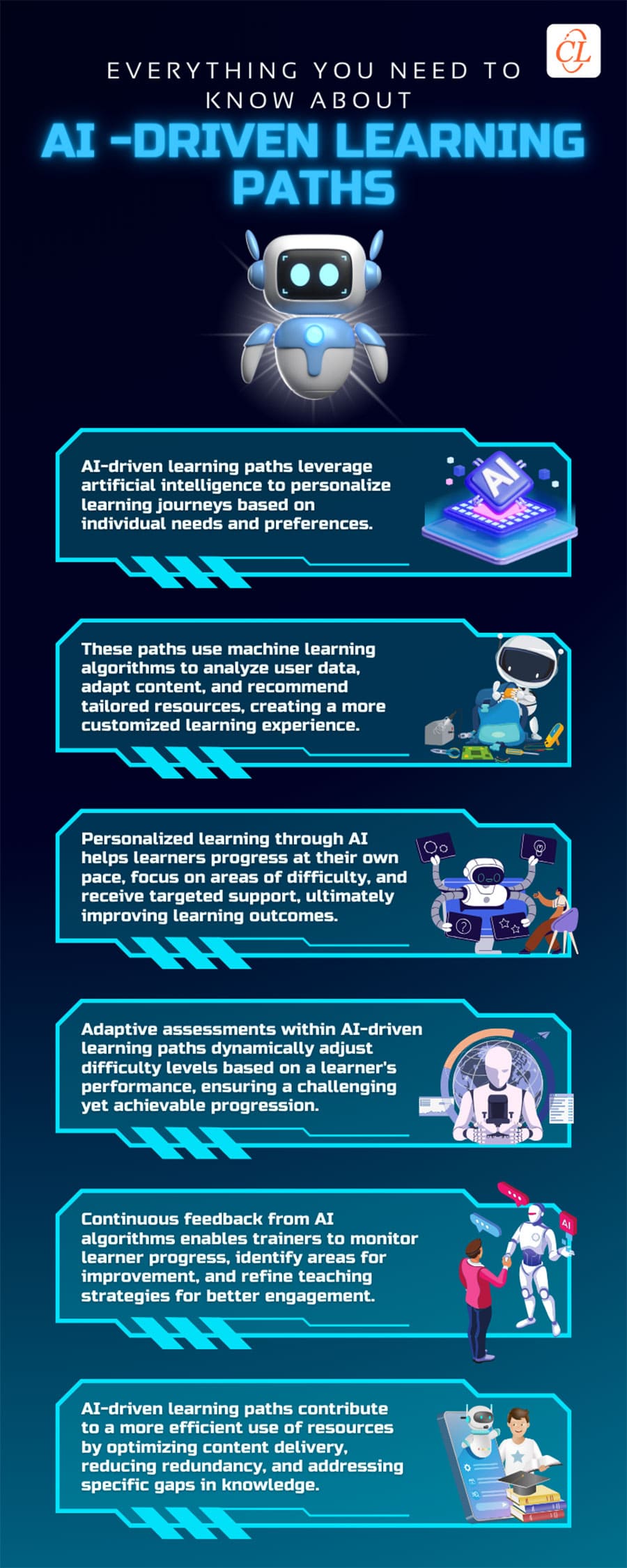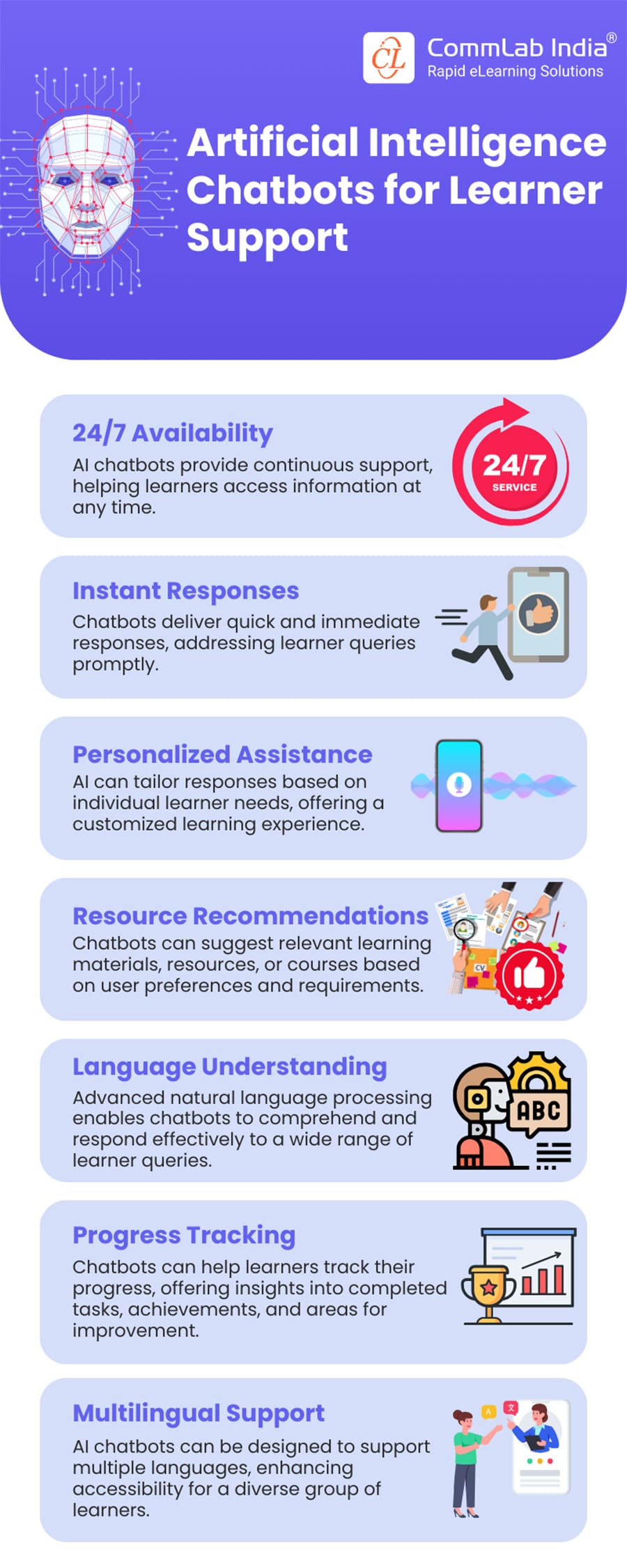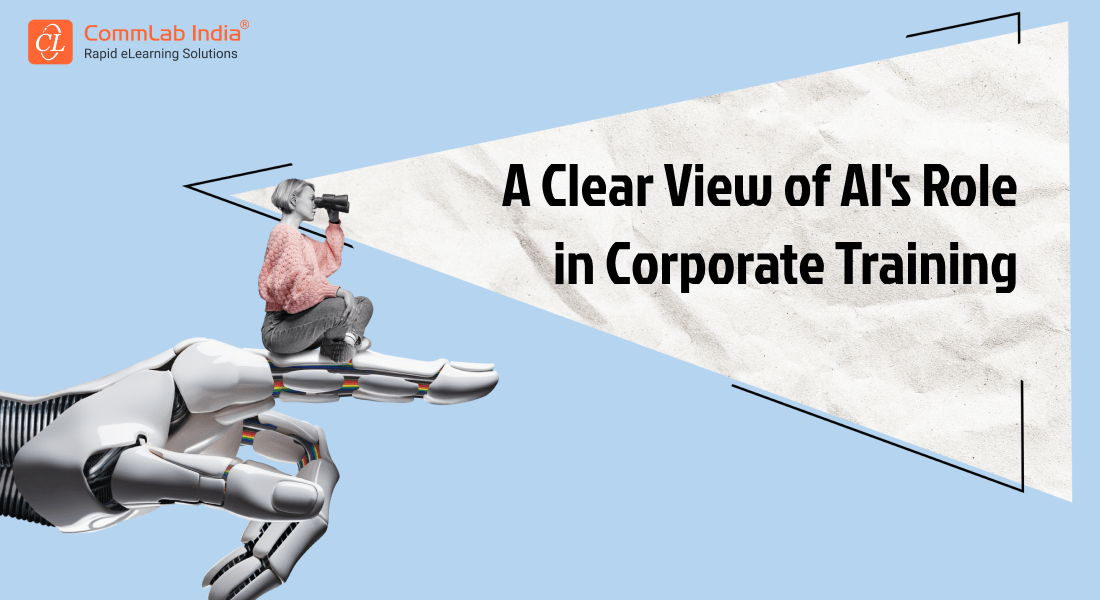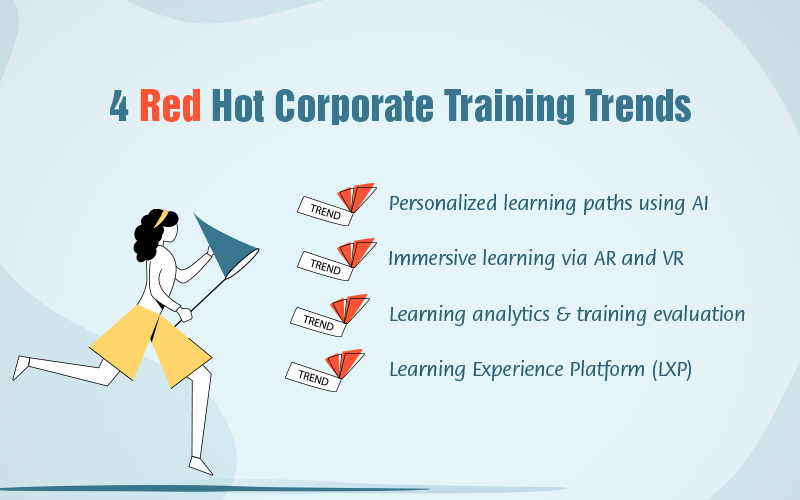Unwrapping the Gifts of AI in Corporate Training: A Christmas Special

Season's greetings, L&D professionals! 🎄
As the spirit of Christmas lights up the season, let’s unwrap the most exciting gift for employee training and development—AI in corporate training. From personalized learning paths to smarter employee training and development strategies, AI is transforming the way we nurture talent. Join us as we explore how this cutting-edge technology is revolutionizing the future of Learning and Development (L&D), just in time to spread some festive cheer!
Grab a cup of hot cocoa, wrap yourself in the comfort of your favorite cozy blanket, and continue reading our blog to discover more!
→ Download Playbook: 2025 Goal Tracker for L&D Managers [Make Winning a Habit!]
Table of Content
- How AI is the Star on L&D’s Christmas Tree
- Why AI is the Perfect Stocking Stuffer for Corporate Training
How AI is the Star on L&D’s Christmas Tree

Artificial Intelligence (AI) helps overcome some very common hurdles faced during traditional corporate training.
Too Much Content:
Many traditional training models struggle with the issue of too much or too long content. AI has made the task easier by automating mundane and repetitive tasks easier.
Lacking Personalized Experience:
The course development process is time-consuming and requires effort hence creating a personalized learning experience is not easy. AI helps create personalized content for learners based on their learning needs.
Unable to Track Training Effectiveness:
Calculating the results of training is a time-consuming process as it involves lots of data collecting and entry processes. That is when AI comes to the rescue.
Curious about how AI can offer more to corporate training?
Don’t miss this blog! Discover the game-changing benefits every training manager needs to know.
Why AI is the Perfect Stocking Stuffer for Corporate Training
Artificial Intelligence has Encapsulated Itself Within L&D
Here are 5 ways AI has achieved this supremacy
- AI-powered Personalized Learning
- AI-driven Analytics
- Natural Language Processing (NLP)
- Real-Time Interaction
- Adaptive Learning Algorithms
The Gifts of AI-powered Personalized Learning
Unveiling the first enchanting gift: AI-powered personalized learning.
Personalized learning is a data-driven approach, that analyzes every employee’s performance and uses machine learning algorithms to predict the future requirements and results of a learner while understanding their strong and weak points.
Imagine a world where your training modules are customized based on your learners' skill levels, preferences, and learning styles. AI analyzes their performance data to deliver a personalized learning path that enhances engagement and knowledge retention—a truly magical learning experience designed just for you.
AI is used to influence the customized content that needs to be shared with the learner. AI can track their previous performances and understand their learning style, thus, delivering personalized content with relevant changes as per the learner while ignoring the “one size fits all” narrative.
Discover how AI-driven learning paths personalize learning and enhance outcomes with these key features!
The Joy of AI-driven Analytics
And for our second gift, we present the joy of intelligent analytics—a treasure trove of insights for L&D professionals. It's akin to having Santa's workshop analytics for your corporate training programs, giving you a peek into what works wonders and where improvements are a gift away.
Imagine this: AI-driven analytics unveil patterns in your engagement, completion rates, and areas of challenge. This empowers your team to make data-backed decisions, optimizing training content and strategies for a sleigh ride of maximum impact.
Advanced analytics helps a company to have a dynamic, personalized, flexible, and effective training or learning approach for their employees and evaluate their performances to promote learner engagement and make eLearning fun and exciting.

The 2025 L&D Managers’ Playbook
Make Winning a Habit!
- Take stock of your current state
- Set goals for your personal growth
- Define your professional upskilling targets
- Use the tracker, wheel of life, and other tools
- Stay on the path of success
The Wonder of Natural Language Processing (NLP)
Now, let's unwrap the fourth gift and marvel at the wonder of Natural Language Processing (NLP).
Natural Language Processing is an AI sub-field that focuses on enabling systems to analyze, understand, process, and respond to human languages.
Think of it like Santa understanding wish lists in different languages around the world—NLP enables AI to comprehend and respond to human language, fostering clear communication and engagement in corporate training.

Imagine this scenario: Virtual assistants responding to your queries in a conversational manner, enhancing your learning experience and encouraging you to actively engage with the training content.
Learners can communicate and interact with their respective eLearning platforms, ask questions, solve doubts, receive information, and engage in other fun activities to make the most out of their AI-enabled learning session.
The Sparkle of Real-Time Interaction
When a learner is invested in a topic freshly introduced to them, they want a real-time tutor or guide to help them and answer any doubts that might arise while learning. But things aren’t so ideal every time, there can be an absence of a trainer or the learner might feel uncomfortable while asking a doubt due to any personal reason; creating an overall hassle in the learning process. AI can be integrated into the learning programs to solve the issue as AI can act as a virtual assistant or a virtual tutor that will answer all the doubts and questions spontaneously.
Smart chatbots are the best example of an AI program that serves as a medium for real-time interaction. When you integrate a smart chatbot into your learning program, it can provide various AI functions to assist the learner. A chatbot can analyze the parts a learner is weak at, with the help of the previous data it gathered about the learner, and put emphasis on that specific part while asking questions. The learner can ask his doubts to a smart chatbot and the bot would respond in a conversational manner, just like a human being would, ultimately boosting the learner’s engagement.
Ever wondered how AI chatbots can make learning more engaging and supportive? Let's dive into how these smart assistants are helping learners succeed!
The Magic of Adaptive Learning Algorithms
And now, our third gift unwraps the magic of adaptive learning algorithms—a bit like Santa's sleigh adjusting to different weather conditions. These algorithms ensure that your training content dances dynamically with learners' progress, creating an interactive and responsive learning experience.
Picture this: A training program that adapts in real-time to your strengths and weaknesses. AI algorithms analyze your performance, tweaking the difficulty of questions or offering extra support as needed, crafting an engaging and effective learning journey.
Looking to revolutionize your corporate training programs? Discover how adaptive learning paths powered by AI can drive real results for your team.
Tis the Season to Transform Training with AI

As we wrap up this festive exploration, we envision the transformative power AI brings to corporate training. From personalized learning to intelligent analytics, adaptive algorithms, and the magic of Natural Language Processing, AI is the gift that redefines eLearning joy. Elevate your training with the AI revolution. Transform your corporate training with the power of AI. The future of workplace learning isn’t on its way—it’s already here. Are you prepared to take the lead?
Get your hands on the 2025 L&D Managers’ Playbook! Designed specifically for learning and development professionals, this guide provides a clear framework to help you set, monitor, and accomplish your objectives. Use it to evaluate your current focus areas, uncover opportunities for growth, and map out a winning strategy for the year ahead. It’s also packed with valuable tools to support your ongoing professional development. Grab your copy today!
Wishing you a Merry Christmas and a year filled with learning wonders ahead! 🎄







